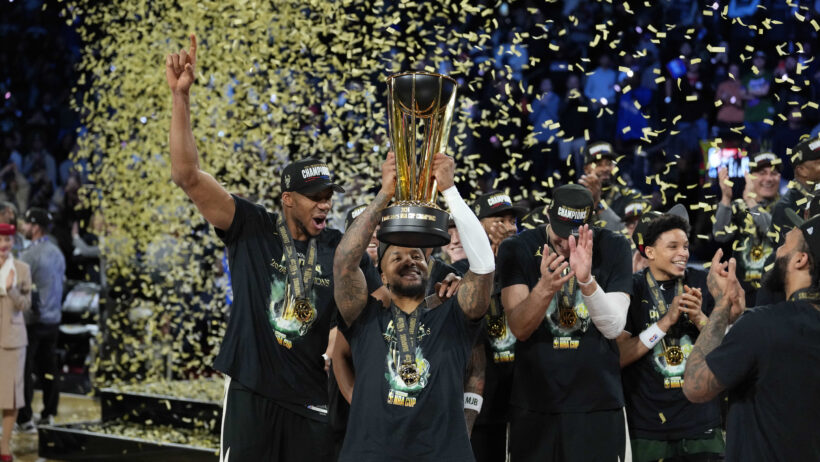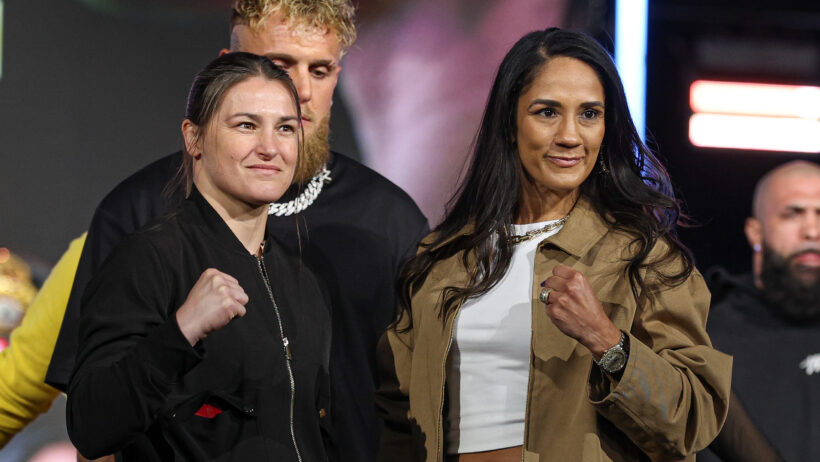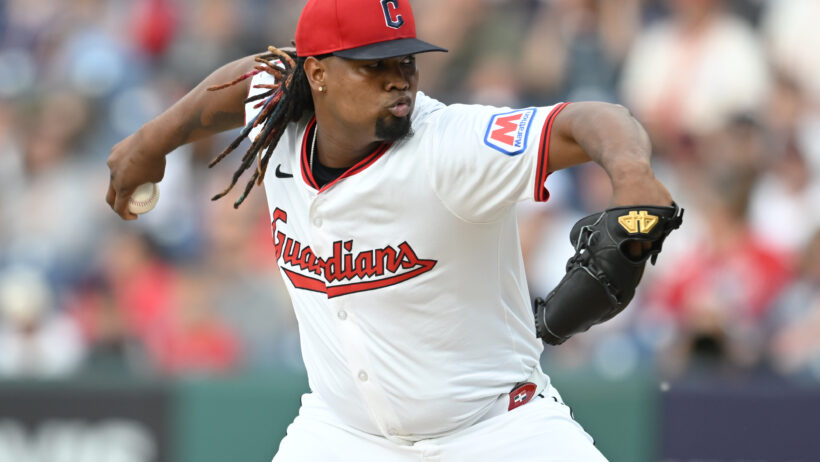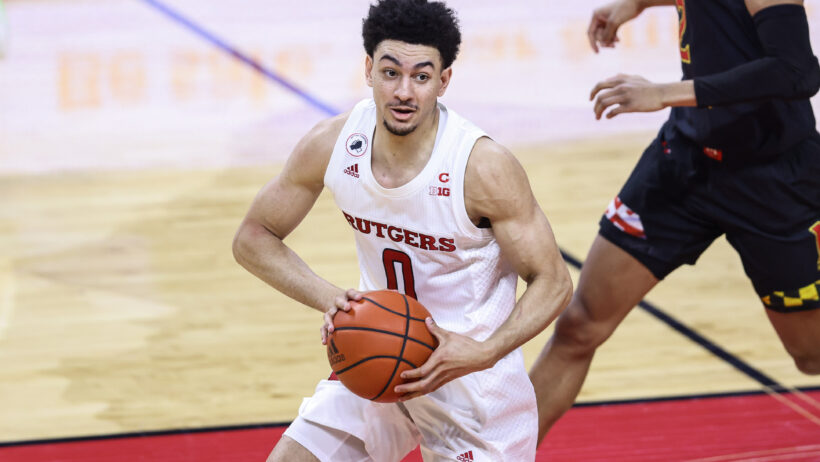Hot Stakes – LeBron Still Isn’t Jordan
By Matt McEwan in News
Updated: March 23, 2020 at 10:37 am EDTPublished:
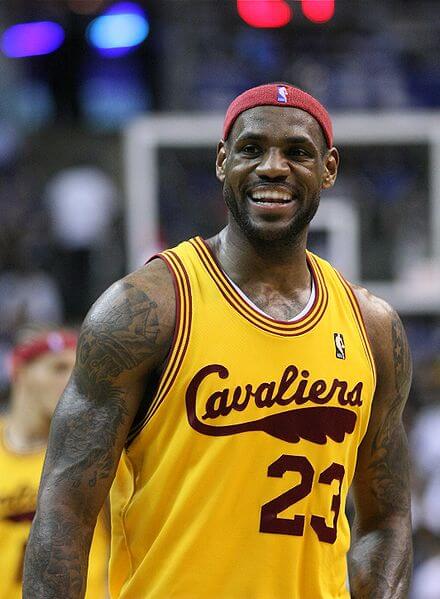
In SBD’s Hot Stakes article series, we give the floor to our resident writers and some guest contributors to opine on anything and everything in the North American sporting landscape. What’s got us all hot-up? Last time, it was the awesome track record of MLB umpires. It’s almost always something that lost us money.
On Sunday June 19th, 2016, LeBron James and the Cleveland Cavaliers made history. Not only did James and company bring Cleveland its first major sports title since 1964, but they also became the first team in NBA Finals history to come back from a 3-1 series deficit.
To provide a little more perspective on the championship drought in Cleveland, when the Browns won their last title in 1964, it wasn’t even called the Super Bowl. Since then, the city has been through a lot of heartbreak. It witnessed “The Fumble,” had to watch John Elway orchestrate “The Drive,” saw the Indians lose two World Series in the 90s (one in extras in Game 7), and, more recently, suffered through LeBron walking out and winning two titles in Miami.
Yup, it’s been rough times in Cleveland.
However, all of that is now in the past, as the Cleveland Cavaliers are NBA champions, and LeBron James is their savior.
“The King” put forth a very impressive finals performance against the 73-win Golden State Warriors and is now the owner of three NBA championships (and as many Finals MVPs). Add on his four NBA MVP awards and LeBron has put together a pretty impressive resume.
Is it the greatest resume of all? As you can probably tell from the title of this article, I say no.
Although he was able to exorcise some of his demons in the 2016 NBA finals, that performance can’t erase what has already happened.
Before I carry on, I want to be very clear: LeBron James is one of the best basketball players to ever play the game. But he is still not the greatest player of all-time. That title still belongs to the legendary Michael Jordan.
Their career numbers in the regular season are pretty similar. Where LeBron gains a slight advantage in rebounds and assists, he gives it right back in terms of points, steals, and turnovers. The exact same is true about their overall playoff statistics. (You can compare the two here and here if you like.) Instead of nitpicking those stats, this breakdown is going to rely heavily on their finals performances.
Number of Championships
I’ll start with perhaps the most powerful argument of all. James has now played in seven finals series, but has a losing record (3-4). Jordan only played in six but he won them all.
Some take issue with strictly looking at wins and losses, since it is a team statistic. For those who want to credit him for reaching the finals seven times, I would counter with the fact that LeBron has had the luxury of playing in an incredibly weak Eastern Conference since he came into the league. The fact that the Orlando Magic, led by Hedo Turkoglu, represented the conference in the 2009 NBA finals is a case-in-point. (Seriously, Turkoglu led the team in points during that finals.)
The 2010 and 2011 Chicago Bulls were the best teams LeBron had to go through, and I could’ve just said “the 2010 and 2011 Derrick Roses” instead. There is a reason LeBron didn’t “take his talents” to California. It has been smooth sailing for James due to the lack of competition in the East.
Can’t Beat ’em, Join ’em?
Speaking of the team aspect, LeBron James had to seek out arguably the next best player in the league, Dwyane Wade, and one of the top big-men, Chris Bosh, in order to win his first two titles. In doing this, James effectively tapped out and admitted that he could not reach the pinnacle without an All-Star supporting cast. (Hey, if you can’t beat’em, join’em, as they say!) For this reason, his first two championships are a bit tarnished.
![Photo Credit: Keith Allison (flickr) [http://creativecommons.org/licenses/by-sa/4.0/legalcode]](https://www.sportsbettingdime.com/app/uploads/5576411530_dcc8941f4c_z-153x200.jpg)
I am not suggesting that LeBron hasn’t had to play against good, or even great, players, but the list just doesn’t match that of the early to late 90s.
The Losses
Since Michael Jordan does not have any losses in the finals, we can’t discuss him in this section. (BOOM GOES THE DYNAMITE!)
LeBron, on the other hand, has four, including a sweep in his first appearance. However, the sweep wasn’t the worst of the bunch; he was effectively on his own with that Cleveland team. I look to the two series that he lost with the Heat when he had Wade and Bosh to support him.
In his first season in Miami, the Heat ran into the Dallas Mavericks in the NBA finals. During the series, both Dwyane Wade and Chris Bosh attempted more field goals than the “King,” and he was also outscored by both, as well as Dirk Nowitzki and Jason Terry from the Mavs. LeBron did lead the finals in turnovers with 24, whereas Wade and Bosh combined for 28. That’s not something the greatest player of all-time allows to happen. The greatest player of all-time is the one taking the shots and shouldering the offensive load, not passing it off and turning the ball over.
Now let’s talk about the result. The Heat got out-worked and out-hustled by an ageing group consisting of Dirk Nowitzki, Jason Kidd, and Jason Terry. LeBron and company, or should I say Wade and company, could not even extend this series to seven games, falling in six. “King James” will never be able to erase this defeat from his legacy.
![Photo Credit: Keith Allison (flickr) [http://creativecommons.org/licenses/by-sa/4.0/legalcode]](https://www.sportsbettingdime.com/app/uploads/5275792891_4f74d1d774_z-244x200.jpg)
LeBron did attempt to take on a heavier workload and be “the guy” for the Heat in that series. Unfortunately for him, his best just wasn’t enough. His effort was indeed a valiant one, but he came up short, well short. Again, if you’re the best player to ever play the game, you don’t lose in five games.
For anyone who wants to suggest that this Spurs team was much better than the Karl Malone, John Stockton, and Jeff Hornacek-led Utah Jazz teams that Jordan took down in six, we obviously have different outlooks on the sport.
Supporting Casts
I know this is a popular argument amongst LeBron James supporters, so please take a look at these stats I have so generously pulled for you. (I received a great deal of pleasure from this research, in case that wasn’t clear already.)
In LeBron’s seven finals appearances, only twice has he had to account for more than 30-percent of the team’s scoring, and both of those resulted in losses. Let that sink in. When LeBron has needed to carry his team the most, he has come up short. In the aforementioned loss to the Mavericks, James only accounted for 19.3-percent of the Heat’s scoring. LeBron has never had to win on his own; he’s always had other talented scorers on his team, and quite often more than one.
Jordan had Scottie Pippen and a bunch of other role players whose most valuable skill was putting the ball in Jordan’s hands. Looking at his six finals appearances, only once did Jordan not account for 30-percent of his team’s scoring. That came in ’96 against the Supersonics, when he scored a paltry 29.4-percent of the Bulls’ points. Jordan was still the leading scorer in that series, as he was in every single one of his finals appearances. In 1993, up against Charles Barkley and the Phoenix Suns, Jordan averaged 41 PPG, good for 38.4-percent of his team’s points. That’s a bigger load than LeBron has ever had to carry in the finals.
If that’s not enough, in ’97 Jordan played the last two games of the series with the flu and still scored 36.8-percent of the points for Chicago in that series. Outside of Scottie Pippen, the rest of the roster combined to average 35.5 PPG compared to Jordan’s 32.3.
In 1998, Jordan again carried the Bulls against the same Utah Jazz team they met the previous season, scoring 38.1-percent of the Bulls’ points.
So, enough with the ridiculous “Jordan had a lot more help” arguments, because they hold no merit and discredit any legitimate points you may have.
Defining Moments in the Finals
When you think of Jordan’s finals victories, the first image that comes to your head is probably his series-winning shot in Game 6 of the ’98 finals against the Jazz. Only the keen fans will remember that, down by one, he actually stole the ball from Karl Malone on Utah’s previous possession to set up the shot. That 18-second span will forever live in NBA lore, but it’s hardly Jordan’s only epic finals moment.
![By SuperWikipediano (Own work) [Public domain], via Wikimedia Commons](https://www.sportsbettingdime.com/app/uploads/Michael_Jordan_1996-226x200.jpg)
When you look back on LeBron James’ three finals victories, these clutch, defining moments are lacking. His first finals win against the Oklahoma City Thunder did not really have a defining moment. The Kevin Durant-led Thunder were extremely over-matched, and the series became more about their falters than Miami’s accomplishments. I refuse to acknowledge James’ go-ahead three in Game 4, since he ended up sitting out the final two minutes of the game with leg cramps.
Moving onto his next win against the San Antonio Spurs, the defining moment is easy. Up 3-2 in the series, the Spurs held a late three-point lead in Game 6. LeBron hoisted up a game-tying three-point shot … and missed. Chris Bosh grabbed the offensive rebound and kicked it out to Ray Allen, who hit the game-tying three at the buzzer. LeBron played well in Game 7, but without Allen’s late-game heroics, that series is over.
In his most recent victory against the Warriors, I will give him credit for the block on Andre Iguodala late in Game 7, but Iggy did make it pretty easy. Then it was Kyrie Irving who hit the clutch three-pointer with the game tied and less than a minute to go. James actually missed his last four field goal attempts of the game, which was a big reason why the game remained tied for so long.
Although LeBron has put together some great performances in the NBA finals, he’s never showed that clutch gene you need to be “the greatest player of all time,” and lacks a defining moment as a result.
Last Words
For all the reasons above, LeBron still loses in the ever-popular debate over the greatest player of all-time. That honor continues to reside with the one and only MJ. For now, James can hold onto his title as the greatest athlete to ever play the game, but I’m not even sure everyone will agree with that one either. (Spud Webb, anyone?!)

Editor-in-Chief; Sports Betting Expert
With nearly a decade working in the industry, Matt is a seasoned sports betting veteran. He got his start with SBD in 2016 and worked his way up the ladder to become the Editor-in-Chief. Along the way he has done everything from reviewing sportsbooks to creating proprietary sports betting tools.
